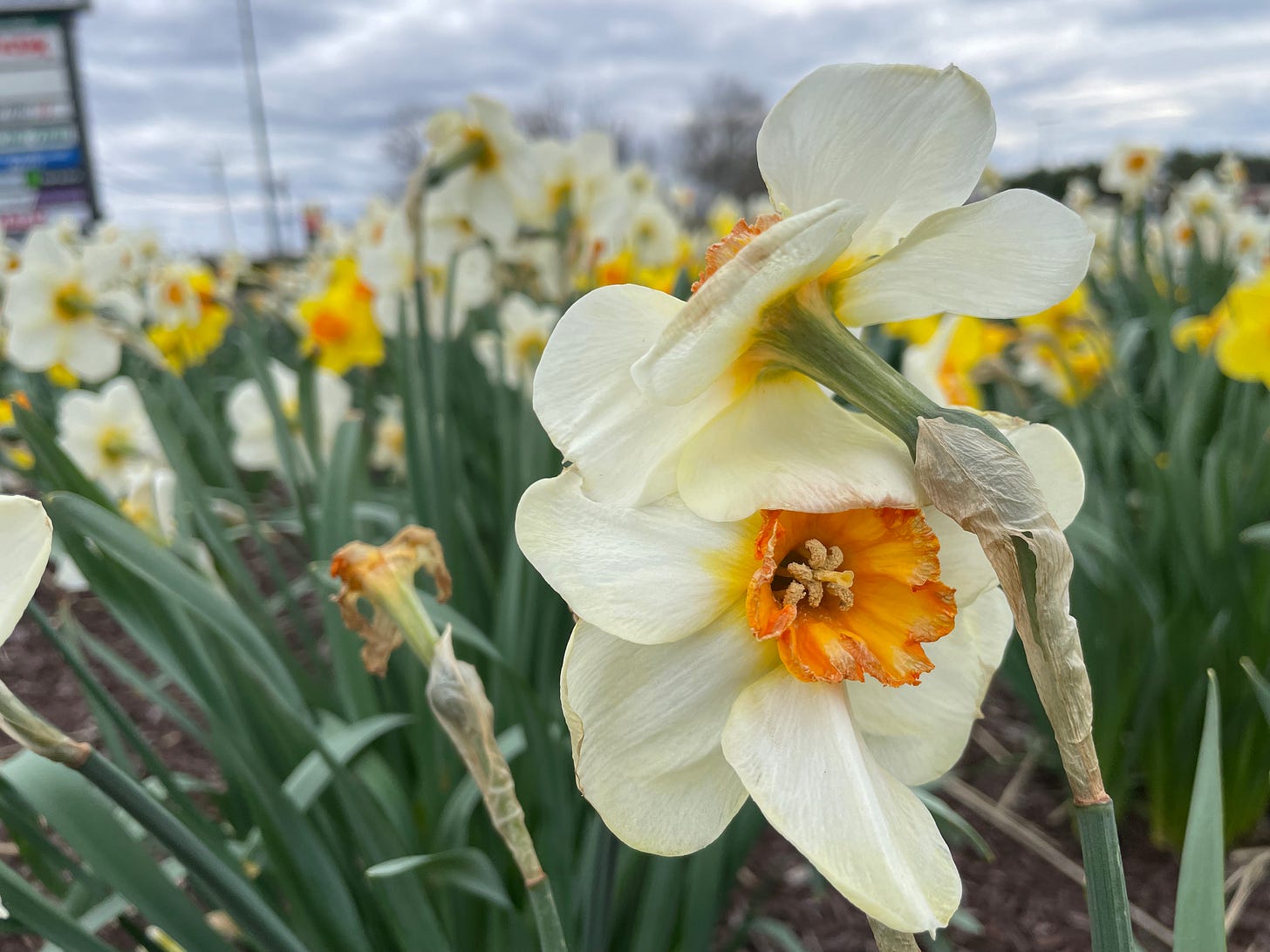A Juneteenth reflection on surnames
William Finch & Daffodils Pt. 7
Although Juneteenth is the United States’s newest federal holiday, established by President Biden in 2021, its earliest celebrations date back to 1866 and to Texas. There, one year earlier, on June 19, 1865, Federal troops arrived to enforce the Emancipation Proclamation and free the remaining people enslaved in the former Confederacy. The holiday commemorates the end of slavery in America and for many years was recognized almost exclusively in Black communities.
I’m white and only learned about the holiday a few years ago, I believe shortly before it was made a federal holiday. Since discovering Juneteenth, I’ve struggled with how to acknowledge it because I don’t want to appropriate cultural traditions, but at the same time, I’m certainly up for celebrating the fact that chattel slavery is no longer legal in our country and that four million people were emancipated as a result of the Civil War. I’m particularly interested in learning about the challenges these individuals faced as they transitioned from slavery to freedom and in highlighting their achievements.
From slavery to freedom
In this series, William Finch & Daffodils, I’ve examined the life of William Finch, who was born into slavery but after the war became a successful tailor, an Atlanta city council member, and a champion of public education. I’ve talked about his act of defiance, shortly after the war, when despite having aided Confederate troops during the war, he presented an American flag to Union troops. I’ve looked at how his obituary not only listed his achievements but also praised him for standing “well among white people.” I’ve shared videos highlighting his legacy among his descendants. I’ve found a lot of stories about him in old newspapers that speak not only to his passion but also to the pain he experienced during his life, and I still have more to share from these investigations.
Another source that I’ve been consulting to learn about William Finch is the The War-Time Journal of a Georgia Girl by Eliza Frances “Fanny” Andrews, who was white and was the daughter of Judge Garnett Andrews, a plantation owner and Union sympathizer. The research that I’ve done on William Finch suggests that he spent time in the Andrews household as a young man while he was training as a tailor and then returned there during the war with his wife and children.
I haven’t finished Fanny Andrews’ journal, but based on text searches and what I’ve read so far, I haven’t seen her make any mention of William Finch or his family. She does talk about many other enslaved people, who she generally refers to as servants. Since her entries cover the period 1864-1865, she also discusses what happens after emancipation is enforced in her town of Washington, Georgia.
One thing she writes about is how the newly emancipated are encouraged by Union officers stationed in the town to choose last names for themselves:
“I notice that the negroes seldom or never take the names of their present owners in adopting their ‘entitles,’ as they call their surnames, but always that of some former master, and they go as far back as possible. It was the name of the actual owner that distinguished them in slavery, and I suppose they wish to throw off that badge of servitude. Then, too, they have their notions of family pride.” - Eliza Frances Andrews, The War-Time Journal of a Georgia Girl
To give this quote more context, before she says this, she makes fun of the name chosen by a newly emancipated woman who works in her household. She then goes on to note that:
"There will soon be no more old mammies and daddies, no more old uncles and aunties…The sweet ties that bound our old family servants to us will be broken and replaced with envy and ill-will.” -Ibid.
I share this statement because I think it speaks to the radical transformation in identities and relationships among enslavers and the newly emancipated at the time. While I haven’t found any references to William Finch in Andrews’ journals, this particular section made me wonder how his self identified name and what he was called by others might have changed after the war, both legally and informally.
A new identity
In the short biographies I’ve read about him, Finch is mentioned as having connections with both Judge Garnett Andrews and Chief Justice Joseph Lumpkin. Finch’s descendants suggest in the videos I referenced earlier that the latter man may have been Finch’s biological father.
I haven’t found anything in my research as to how he came to have the last name Finch. The closest bit of evidence is an 1871 record from the Freeman’s Bank. There’s a line asking for information on William Finch’s father, which is filled out:
“— Finch dead”
On the same form, his mother is described as:
“Frances dead”
Was Finch a family name? Was it a name chosen to represent a new beginning? Am I being presumptuous in wanting to find out the origins?
If you would like to learn more about surnames among the newly emancipated at the end of the Civil War, I found this article offered a good summary.
The daffodils
The most vibrant patch of daffodils I found this year was in a suburban strip mall parking lot, and I especially loved these two that seemed to be clinging to each other.



